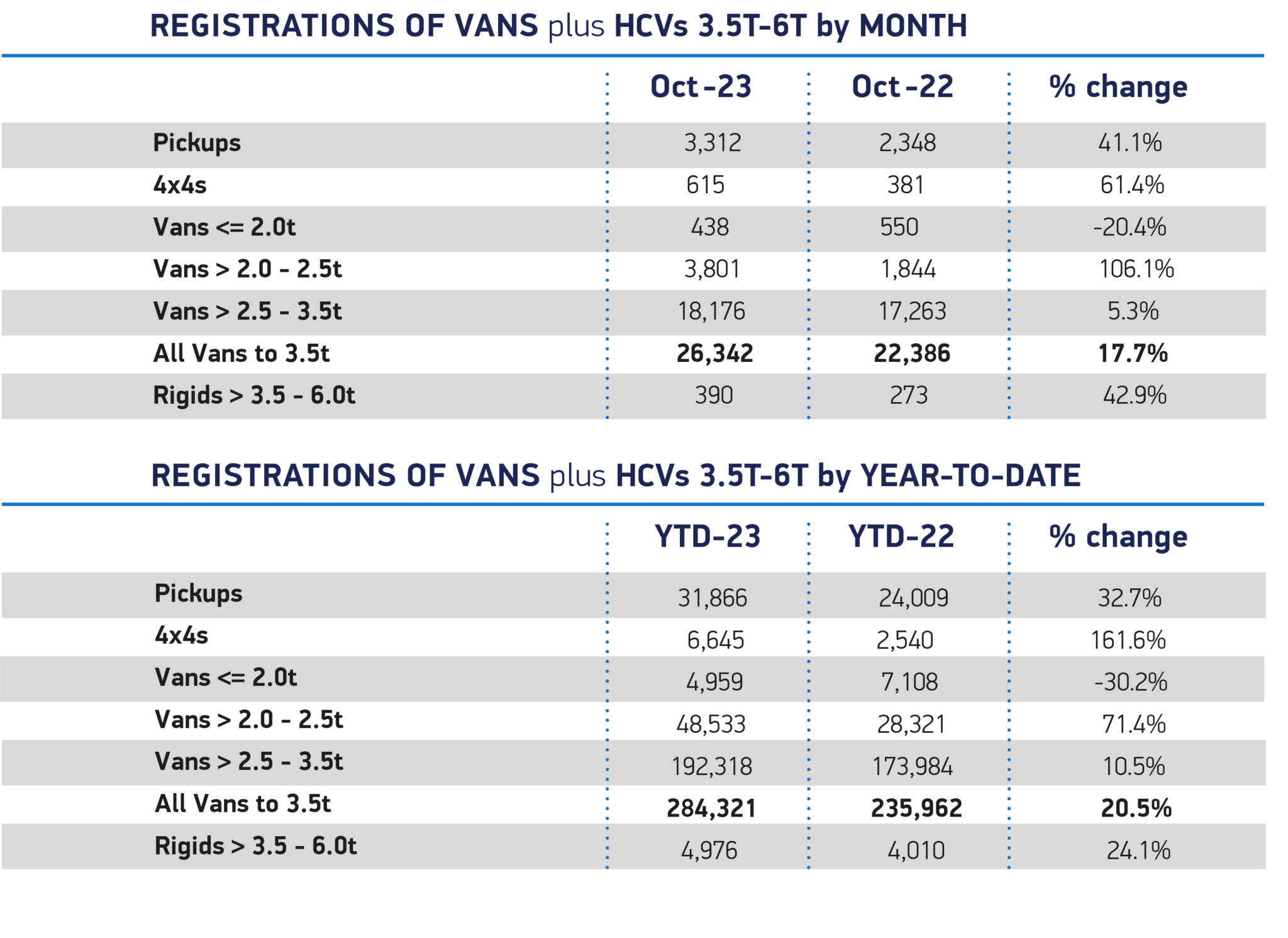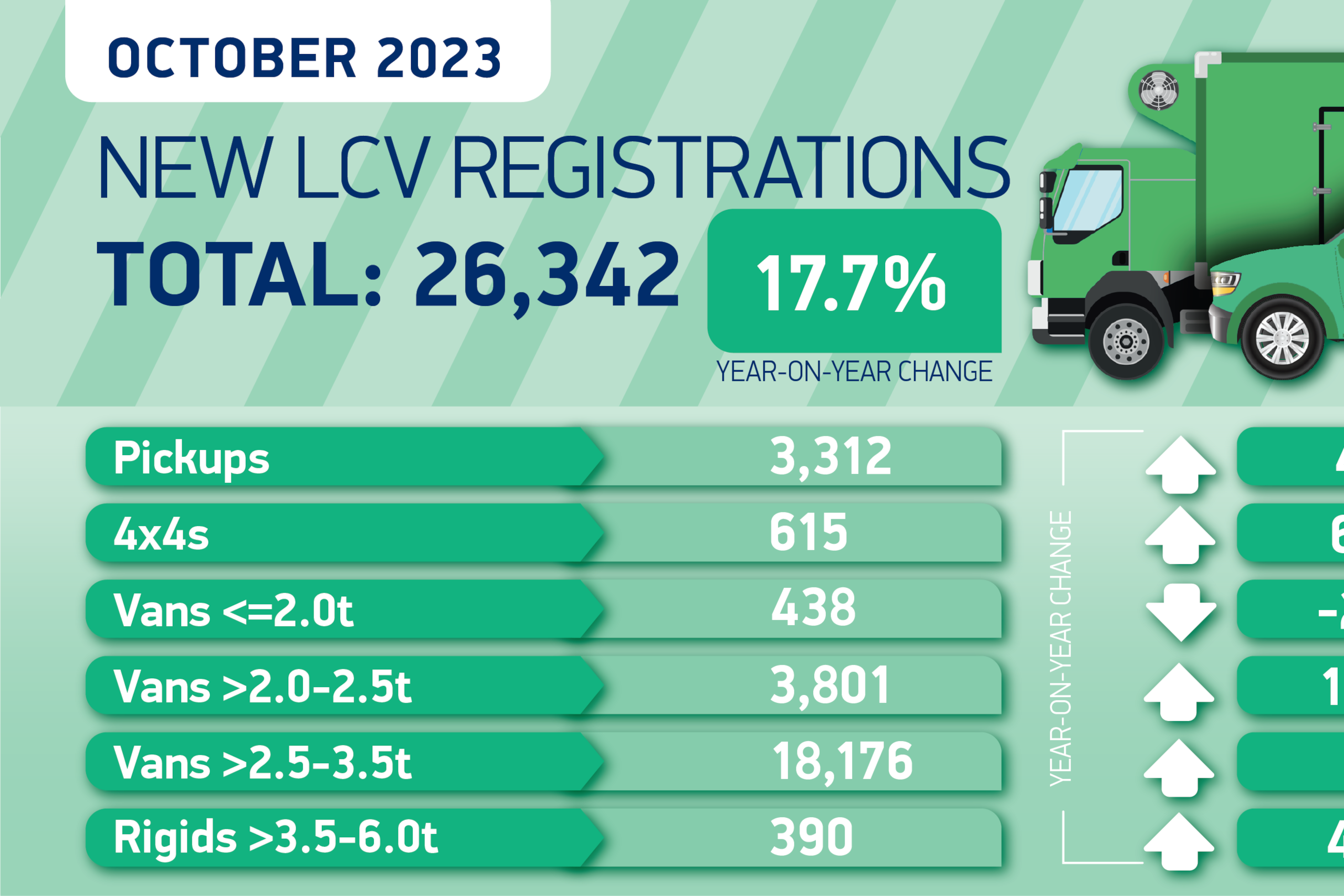October was another great month for light commercial vehicle (LCV) registrations, with a strong 17.7% increase over the previous October.
The Society of Motor Manufacturers and Traders (SMMT) has released the numbers for October 2023, which show a continued increase for the 10th month in a row. Year-to-date, this is the highest volume since 2021 and can be attributed to greater vehicle availability due to fewer supply chain disruptions.
The majority of LCVs registered in October were large vans, between 2.5 t and 3.5t. Despite only showing a 5.3% increase, there were 18,176 units registered in October 2023, up from 17,263 in October 2022. Year-to-date, that is a 10.5% increase, with 192,318 large vans registered in 2023 so far.
Medium van registrations, between 2.0t and 2.5t, more than doubled year-on-year, going from 1,844 units in October 2022, to 3,801 in October this year. This increase is emphasised when looking at the year-to-date figures, with medium van registrations increasing 71.4%, from 28,321 in 2022 to 48,533 so far in 2023.

Perhaps surprisingly, battery electric van (BEV) registrations are down this month, dropping 20.2% from 1,706 in October 2022, to 1,362 this month. While remaining up when comparing year-to-date figures with last year, this drop should be seen as a warning sign that BEVs are not fully accepted yet.
While van manufacturers are pushing forward with fully electric fleets, there are concerns that the charging and maintenance infrastructure is not strong enough to handle increased BEVs on the road.
Mike Hawes, SMMT Chief Executive, said, “As the crucial pre-Christmas delivery period commences, there is a clear appetite for fleets to be fitted out with the latest vans – and it is of critical importance that those vans are the latest, cleanest zero emission models. With van makers committed to decarbonisation, the upcoming Autumn Statement is the moment for government to send the right signal to operators ahead of the introduction of the Zero Emission Vehicle Mandate. Measures that address van-specific infrastructure challenges and enable more operators across the UK to make the switch are essential as we move towards a pivotal stage of the transition.”

